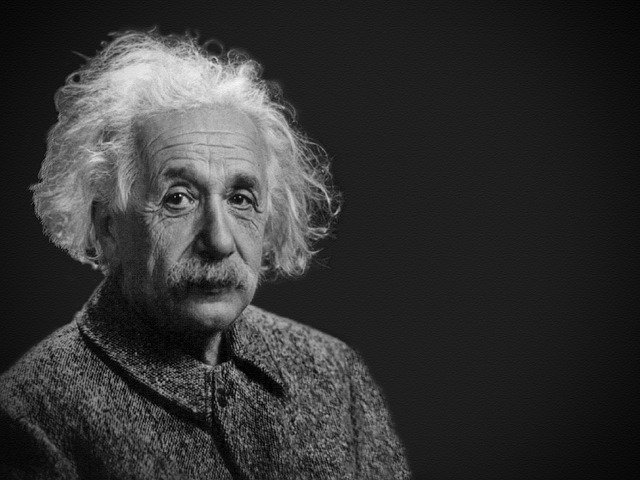
Einstein had the intellectual capacity to learn mathematics at the advanced level, but in his early youth, he thought that most abstract mathematics had little use. While at the Zurich Polytechnic, he scored 5 out of 6 points in this theoretical physics courses, but only 4 out of 6 in his mathematics courses. Believing that mathematics had no application in physics, he skipped his classes in non-Euclidean geometry, prompting his mathematics professor Hermann Minkowski to call him a “lazy dog.” Later, reflecting on his college years, Einstein admitted, “It was not clear to me as a student that a more profound knowledge of the basic principles of physics was tied up with the most intricate mathematical methods.”
Between 1912 and 1915, Einstein struggled with the formulation of his General Theory. He was searching for a tensor that would define spacetime in a way that would make the law of universal gravitation a consequence of the geometry of spacetime. The metric tensor he sought would have to yield the same equations independent of the coordinate systems in which they were expressed–a property called covariance. While deeply embroiled in the struggle to find the correct tensors to achieve covariance, Einstein had been bedeviled by false starts, computational blunders, and doubts about the validity of his assumptions. In a letter to his friend and colleague H. A. Lorentz on February 3, 1915, he wrote:
The theoretician can error in two ways:
1) The devil leads him by the nose with a false premise. (For this he deserves sympathy)
2) His arguments are fallacious or sloppy. (For this he deserves a beating)
In that correspondence, Einstein confessed to deserving several beatings on account of some fallacious arguments or sloppy mathematics. However, all mathematicians and physicists recognize that mathematical errors go with the territory. Beautiful proofs and derivations are the polished final product preceded by many blunders and mental malfunctions. However, the first type of error–heading down a blind alley–is the theoretician’s greatest nightmare.
During his struggle to learn the mathematics needed to formulate his theory, he sought help from his former classmate, Marcel Grossmann, and his former professor, Minkowski. Einstein wrote to a colleague, “At a very early age, I made an assumption that a successful physicist only needs to know elementary mathematics. At a later time, with great regret, I realized that the assumption of mine was completely wrong.”
Einstein’s biographer Walter Isaacson notes:
In his younger days, Einstein sometimes disparaged the role that pure math could play. But during his final push toward a general theory of relativity, it was the mathematical approach that ended up putting him across the goal line.
Now, a century later, it is apparent that without mathematical fluency, the so-called “hard sciences” and increasingly, some of the social sciences are out of reach. As psychologist Daniel Kahneman explained, after observing people struggling with mathematical types of problems, “Many people are overconfident, prone to place too much faith in their intuitions. They apparently find cognitive effort at least mildly unpleasant and avoid it as much as possible.” Indeed, we all have difficulty mastering mathematics, but differ only in the level of mathematics at which we are challenged.
